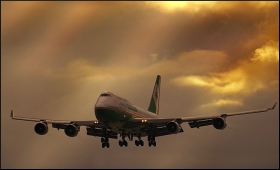|
|
|

|
Permanent enforcement of fare bands may be dampener on Aviation industry
|
|

|
|
| Top Stories |
 |
|
|
|
SME Times News Bureau | 12 Jan, 2021
The permanent enforcement of fare bands may prove to be a huge dampener
on the Aviation industry as a whole, weakening sentiment for the
regulated market, Motilal Oswal Financial Services said on Tuesday.
In
its report of the Indian aviation sector, the brokerage said that
though temporarily the regulated fare market may not be impacted as
airline fares in CY20 (calendar year) had a lower floor and cap than the
one imposed by ministry of civil aviation (MoCA), the lowering yields
and rise in input cost particularly on account of rising crude prices
could pose severe challenges to the industry.
In the wake of the
coronavirus outbreak, the aviation ministry has implemented a cap on
domestic airfare that is to remain effective till March 31.
Under
the regulations, based on duration of a flight, airline routes have
been classified into seven categories. The base minimum airfare of
domestic flights in each category ranges has also been fixed from Rs
2,000 to Rs 6,500 and the maximum range from Rs 6,000 to Rs 18,600.
Airlines have to make available 20 per cent (earlier 40 per cent) of
total seats in an aircraft at less than the midpoint price between the
highest and lowest fares.
The brokerage report said the reduction
in total seats to be sold under median price band had raised the
weightage average airfare for companies, the reduction passenger load
after the October peak along with 14-21 per cent drop in airfares in
November and December will create an environment for further stress in
the sector.
India has a huge order book of more than 500 planes
coming in over the next 3-4 years. And, with domestic air travel demand
extremely elastic to railway journeys, airlines would have to compete on
fares to fill their seats, the brokerage report said, making a case for
removal of regulated pricing.
"We reaffirm that optimism over
the vaccine could certainly result in increased flying confidence. Also,
the reopening of physical offices would require migrant employees to
fly back to their job cities," the report said.
"At the same
time, we believe domestic passenger growth would be slower going forward
(than seen over the last seven months) -- particularly from business
travel and foreigners travelling on domestic routes. This is
attributable to long-lasting changes in demand demographics from
Covid," it added.
The report cautioned that Covid penetration
going ahead would be a determining factor for the health of the sector
as increase in cases results in decrease in air travel.
|
|
|
| |
|
|
|
|
|
|
|
|
|
|
|
|
|
|
| |
| Customs Exchange Rates |
| Currency |
Import |
Export |
US Dollar
|
₹91.35
|
89.65 |
UK Pound
|
₹125.3
|
₹121.3 |
Euro
|
₹108.5
|
₹104.85 |
| Japanese
Yen |
₹58.65 |
₹56.8 |
| As on 19 Feb, 2026 |
|
|
| Daily Poll |
 |
 |
| What is your primary "Make or Break" expectation from the Finance Minister this year? |
|
|
|
|
|
| Commented Stories |
 |
|
|
|
|
|
| |
|